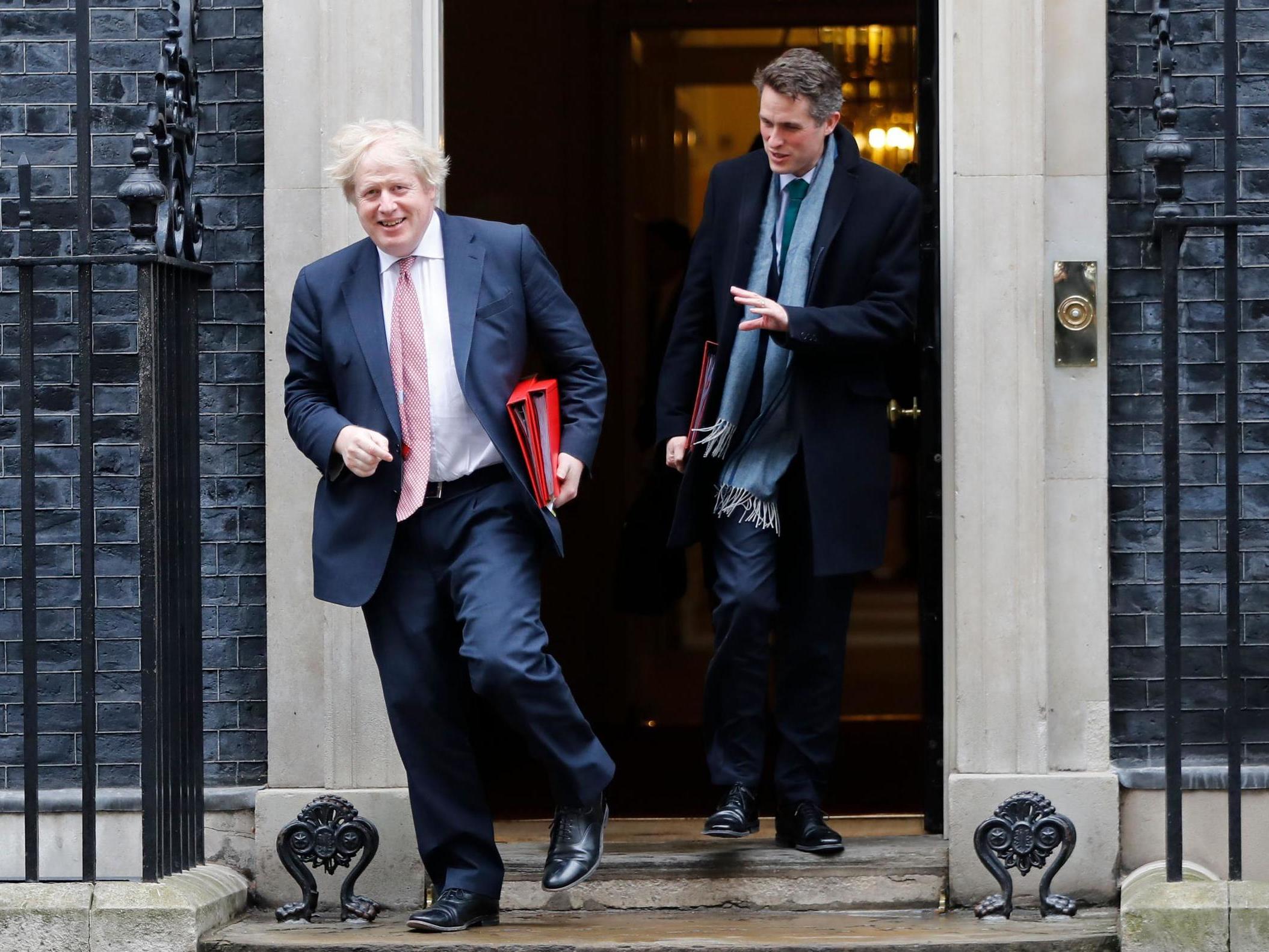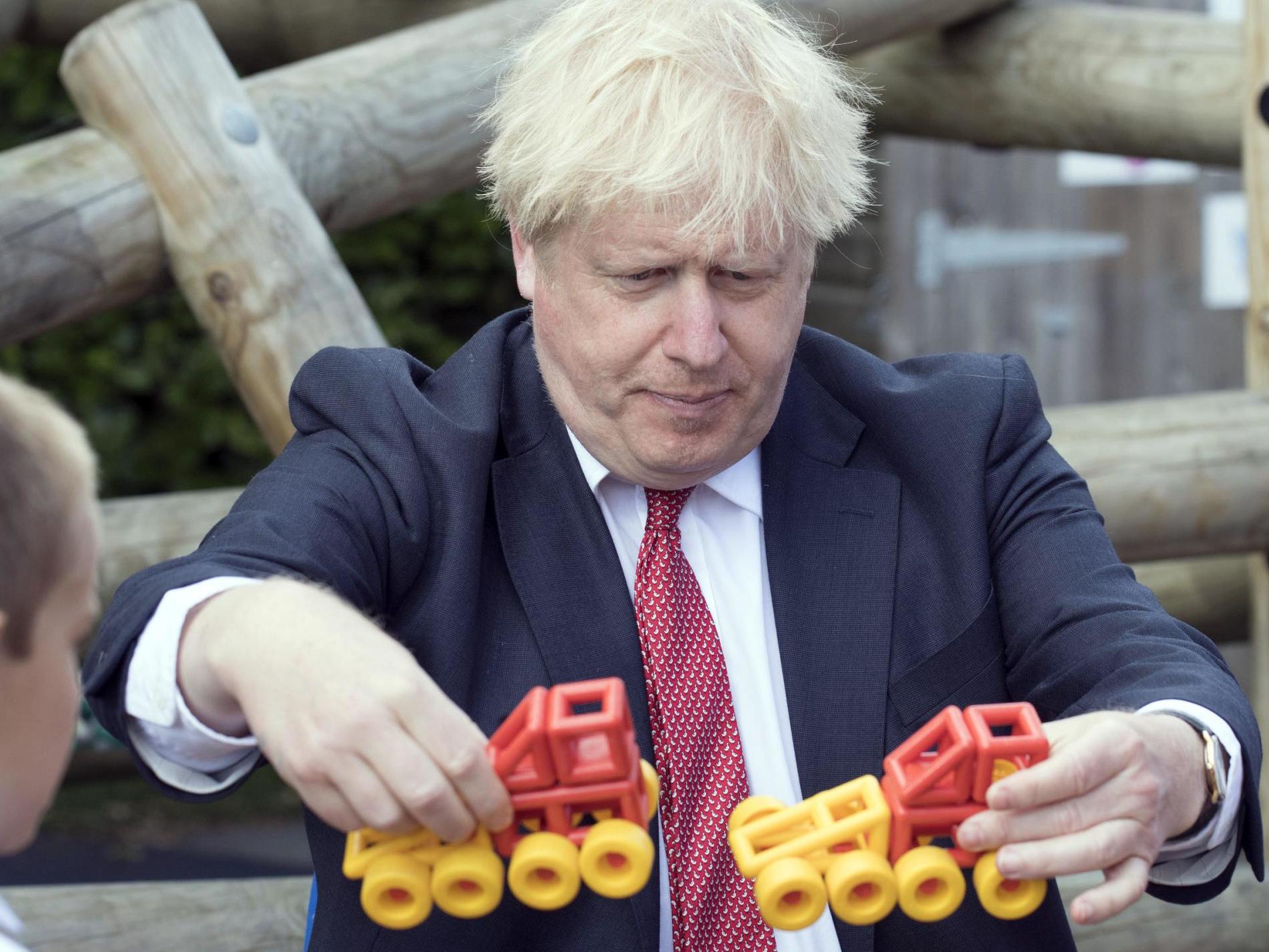Boris Johnson’s coronavirus U-turns: A timeline of government indecision during the pandemic
Reversal on face coverings in English schools is just latest example of government forced into major policy volte face

Your support helps us to tell the story
From reproductive rights to climate change to Big Tech, The Independent is on the ground when the story is developing. Whether it's investigating the financials of Elon Musk's pro-Trump PAC or producing our latest documentary, 'The A Word', which shines a light on the American women fighting for reproductive rights, we know how important it is to parse out the facts from the messaging.
At such a critical moment in US history, we need reporters on the ground. Your donation allows us to keep sending journalists to speak to both sides of the story.
The Independent is trusted by Americans across the entire political spectrum. And unlike many other quality news outlets, we choose not to lock Americans out of our reporting and analysis with paywalls. We believe quality journalism should be available to everyone, paid for by those who can afford it.
Your support makes all the difference.Boris Johnson has been forced to make a number of significant U-turns in less than a year in office, with several key policy decisions scrapped during the pandemic.
National lockdown measures - 31 October
Boris Johnson repeatedly ruled out a second national lockdown both in and outside of the House of Commons - claiming in mid-October that Sir Keir Starmer’s support for a short term shutdown of the country was “the height of absurdity”.
“Let us try to avoid the misery of another national lockdown, which he would want to impose”, Mr Johnson told the Commons, while accusing the leader of the opposition of “opportunism”.
However less than two weeks later Mr Johnson was forced to accept a change in approach to the virus was needed after virus rates continued to rise across the entire nation.
Speaking in a quickly assembled public address on Saturday, he said: “The virus is spreading even faster than the reasonable worst-case scenario of our scientific advisers, whose models now suggest that unless we act, we could see deaths in this country running at several thousand a day, a peak of mortality, alas, bigger than the one we saw in April.”
Working from home - 22 September
The prime minister was forced to abandon the government’s drive to get Britons back in the workplace amid new restrictions to curb the spread of coronavirus.
Michael Gove admitted the government's call for people to return to the workplace, a measure considered critical for the survival of cafes and other businesses which rely on commuters and office workers, had been dropped.
He said there was a "shift in emphasis", telling Sky News: "If it is possible for people to work from home then we would encourage them to do so."
It came after the government's chief scientific and medical advisers warned there could be 50,000 cases a day by mid-October with a daily death toll of 200 or more by mid-November if the current growth in the rate of infection is not halted.
Face masks in schools – 25 August
The prime minister dropped advice against the use of face covering in English schools, in an 11th-hour U-turn following pressure from unions, opposition parties and schools.
From 1 September, staff and pupils in secondary schools in local lockdown areas will be required to wear face coverings in communal areas. Across the rest of England, head teachers will be given the “flexibility” to bring in masks as they choose.
It sparked anger from backbench Conservatives, with Tory MP Huw Merriman saying he was “sick and tired” of seeing advice constantly changing.
Evictions – 21 August
Ministers announced an eleventh hour U-turn on evictions just days before a ban was due to expire in England.
Under increasing pressure from Conservative politicians, Robert Jenrick, the Housing Secretary, announced a four week extension to the moratorium on evictions.
But former Tory cabinet minister Lord Pickles suggested he should have gone further and instated a ban until the Spring.

A-level results ... part one – 11 August
With just a day to go before A-level results were published, ministers announced a partial U-turn to a controversial new marking system brought in after the coronavirus crisis caused exams to be cancelled.
Ministers were accused of a postcode lottery after it emerged that results would be moderated to reflect how individual schools usually perform in the exams.
The U-turn, to allow pupils to use their mock results as the basis for an appeal, also descended into confusions when the exams regulator admitted it could not clarify how the new system would work until days after results were received.
Despite the last minute changes Mr Johnson had declared the exam results “robust’’ and “dependable’’.
A-level results ... part two – 17 August
Amid intense and growing pressure, and only hours after Wales announced it was reverting to A-level results based on teachers’ predictions rather than an apparently flimsy algorithm, the government announced that England would follow suit.
Teachers, students and Labour had demanded the system was scrapped, after nearly 40 per cent of results were downgraded from initial predictions, disproportionately affecting already disadvantaged students.
The education secretary, Gavin Williamson, along with Roger Taylor, the chair of exams regulator Ofqual, both issued public apologies for the distress the fiasco had caused pupils and paren

NHS contact tracing app – 18 June
In June, ministers ditched the technology behind the already delayed NHS Covid-19 contact tracing app – the government’s second U-turn in the space of a week.
In May, Boris Johnson cast aside expert opinion during a session of Prime Minister’s Questions to confidently declare that the UK would have a “world beating” system in place by June.
But that U-turn meant the app won’t be available across England until at least autumn. One minister has admitted that it may not be fully rolled out until the winter. And even then, the product may not be suitable for contact tracing.
Free school meals – 16 June
That reversal came a week after the government decided it would, in fact, extend the free school meals scheme throughout the summer holidays.
The prime minister is well-known for his enthusiasm on the sporting field – if not necessarily his skill. This time Manchester United and England striker Marcus Rashford beat Mr Johnson at what should be his own game: politics.
The call from the premiership footballer to U-turn on plans to scrap free school meal vouchers over the summer turbocharged a campaign that had already been running for weeks.
Once Tory MPs started to add their voices to calls for a change of heart it was time to drop the policy, but not before Mr Rashford had been dubbed the hero of the hour.
Remote voting – 3 June
The government was forced to offer concessions to MPs in early June after howls of protests over plans to make them vote in person in the House of Commons.
The system was declared a farce even by normally loyal Tory MPs after politicians were forced to stand in a line more than a kilometre long to queue to vote.
One MP noted that in the middle of a global pandemic: “This is how infections spread”.
NHS surcharge – 21 May
Boris Johnson announced in May that the £400 annual fee paid by non-EU migrants to use the NHS would be scrapped for health and care workers, just a day after defending the policy.
As the nation assembled on their doorsteps every Thursday night to clap for carers it had become increasingly untenable for NHS staff to be asked to pay extra, on top of their taxes, to use the health service.
Especially as it was inside that very health service where they were willingly risking their lives in the fight against coronavirus.
Bereavement scheme – 20 May
There was an outcry when it emerged a new NHS bereavement scheme would apply to doctors and nurses but not to thousands of other critical staff, many of them low paid.
The scheme grants indefinite leave to remain in the UK to relatives of overseas born NHS staff who die fighting Covid-19. Introduced in April, there were almost immediate calls for it to be extended to other workers, including porters and cleaners.
Announcing the U-turn in May, Priti Patel, the home secretary, said “every death in this crisis is a tragedy”.
Join our commenting forum
Join thought-provoking conversations, follow other Independent readers and see their replies
Comments